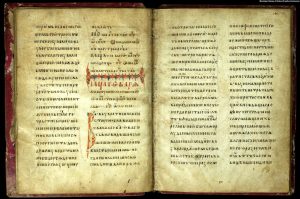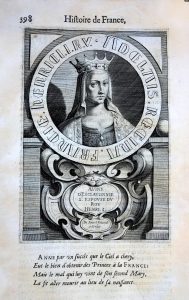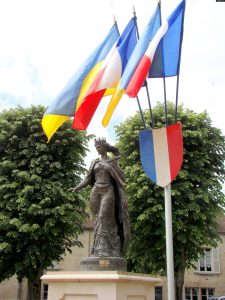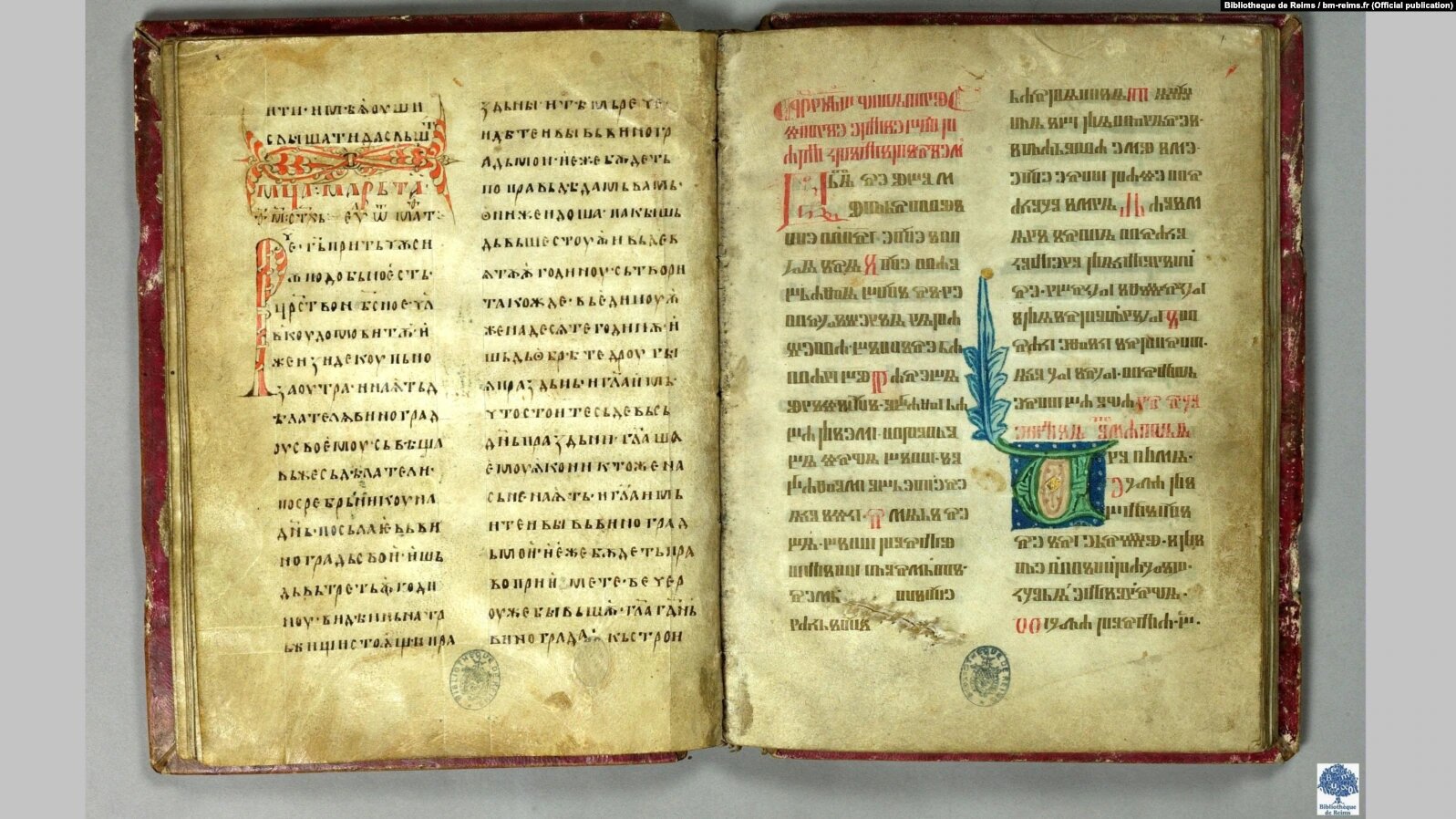How do Ukrainian intellectuals react to this exhibition? How is it that Russia once again openly appropriates Ukrainian historical objects?
Grand exhibition and covert propaganda
The exhibition, entitled France and Russia: ten centuries together, opened on September 17 in the Moscow Kremlin Museums and will last until January, 2022.
About 200 exhibits are displayed.
The Gospel of Reims is one of the most outstanding Slavic manuscripts of the 11th-12th centuries. It consists of two parts.
One of them, written in Cyrillic, arrived in France with Anna Yaroslavna. This scripture, which is kept in the Reims library, was used for centuries by French monarchs who ascended the throne of France.

In the meantime, social media exploded in outrage as angry users pointed to the propaganda around this exhibition. Oleksiy Kopytko draws attention to the fact that the organizers mistakenly consider the marriage of Princess Anna Yaroslavna of Kyiv and King Henry I of France to be the first act of Russian-French relations. According to Kopytko, this is the cornerstone of Russian-French friendship.
The Gospel of Reims, which, according to historians, Anna Yaroslavna brought with her from Kyiv to France, is prominently displayed. Journalist Anna Shestak says that the fact that this historical manuscript dating from Kyivan Rus is showcased at an exhibition in Moscow demonstrates the Ukrainian government’s lack of interest in its monuments and historical heritage.
Europe remains silent!
The fact that the Reims Gospel is presented as a Russian artifact once again indicates Moscow’s crisis of identity, states culturologist Taras Voznyak.

Voznyak maintains that Russians cannot and will not recognize the fact that Tsar Peter I (aka Peter the Great, 1682-1725) openly appropriated the name of its neighbouring state (Ukraine Rus), renamed Muscovy to Russia and began identifying Muscovy’s history with the history of Ukraine-Rus. He underlines that this should be called “historical theft” and that unfortunately, Russia’s interpretation of history is widely accepted in the West.
“Europe is convinced that Kyivan Rus continued as Muscovy and that Moscow was founded before Kyiv. France has long pursued an anti-Ukrainian policy – first, propagating Nord Stream-2; second, blocking Ukraine’s accession to NATO. Today, this historical manuscript is called Russian. This is just another brazen step by Putin. Ukraine should send a strong note of protest through the Ministry of Foreign Affairs, the Minister of Culture or the President of the National Academy of Sciences,” says Taras Voznyak.
A long and difficult fight ahead
Taras Voznyak believes it will takes year to change Europe’s perception of Ukraine so that Europeans stop looking at Ukrainian history through Russian “eye glasses”.
“It’s going to be a long and difficult fight. The best way to regain our historical past is not to bother modern historians and let them do their work. In addition, the rigid archaic National Academy of Sciences should be overhauled. It should receive more funding from the government and young historians and experts should be hired,” says Voznyak.

Historian Yaroslav Hrytsak is convinced that Ukraine must constantly defend its rights and prevent Russia from monopolizing its ancient Rus heritage.
“It’s like saying that France appropriated Charlemagne’s crown for itself and denied it to Germany and Italy,” states Hrytsak.

Yaroslav Hrytsak maintains that the French know very little about Ukraine. Even during the Cold War, France leaned toward the Soviet Union, so it is very difficult for the French to accept Ukraine’s declarations.
Hrytsak advises to work more in European space on several fronts, especially in the cultural sphere. A concrete example was the Pinzel exhibition, which was highly acclaimed at the Louvre in Paris.





